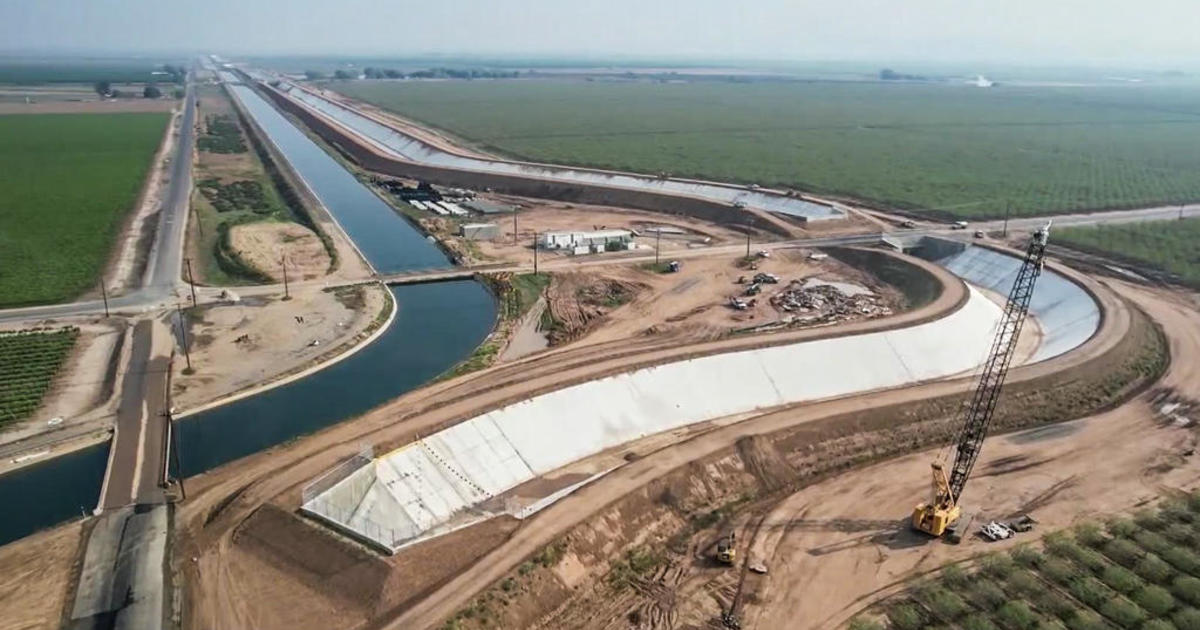California COVID Recovery: Newsom Budget Targets Post-Pandemic Economic Revival
SACRAMENTO (CBS SF) -- Gov. Gavin Newsom unveiled his latest proposed budget Friday for the 2021-2022 fiscal year, with an estimated $4.5 billion earmarked to help the state's economy recover once the COVID-19 pandemic fades.
At a press conference Friday morning where he unveiled his new budget, Newsom described how it addresses problems that came to light this past year during the COVID-19 pandemic.
"Our budget reflects the realities of this recession, this pandemic-induced reality, Newsom said. "Those pre-existing conditions around race and ethnicity, pre-existing conditions around wealth disparities and income disparities -- obviously they've come to the fore and they must be addressed. I want folks to know that our budget reflects an understanding of those realities, and an intentionality in addressing those realities."
Newsom noted that the budget provides economic support in the wake of the pandemic, but also directs resources to other problems that arose over the past year.
"Our goal must be to provide more resources, more discretion and more opportunities for low wage workers and workers at all spectrums to provide more resources, allow more investment, for more spending in our economy, and understandably, an urgent focus must be maintained and vigilant about wildfire preparedness," Newsom said.
Newsom's new budget includes $1 billion for addressing the state's wildfire issues.
The state's recent economic downturn, created by the pandemic, followed the state reporting job growth for 118 consecutive months. But in good news, Newsom's newest budget forecasts a one-time windfall of $15 billion.
The governor said he plans to use $9.5 billion over the next four years to pay down the state's financial obligations for retired employees.
"I hear you. We recognize our responsibility. And yes, we know $10 billion is a drop in the bucket," Newsom said. "But how many states are using general funds to pay long term retirement liabilities?"
Since California's progressive tax structure relies mostly on wealthy earners, the pandemic has led to a strange contrast in the nation's most populous state: Many people who earn more than $60,000 per year have been able to keep their jobs because they can work from home.
That has led the state to collected $74.4 billion in taxes, or $13.7 billion more than it had anticipated.
But the employment rate for people who earn less than $27,000 per year — including restaurant and retail workers — has dropped nearly 27% since January, according to data from Opportunity Insights at Harvard University.
The state Legislative Analyst had predicted the windfall would be around $26 billion. But Newsom believes the state constitution requires him to set aside $4.5 billion in California's reserve fund. The state's rainy day fund for economic uncertainties will rise to $15.6 billion, while its overall reserves climb to $22 billion.
Newsom said earlier this week that he will propose allocating $575 million for grants of up to $25,000 for the state's small businesses that have been negatively affected by the pandemic.
The grant funding would be allocated in addition to the $500 million the state previously allocated for small businesses. About $25 million in grants would also be reserved for small cultural institutions like museums and art galleries.
"These budget proposals reflect our commitment to an equitable, broad-based recovery that ensures California remains the best place to start and grow a business - and where all Californians have an opportunity to reach their dreams," Newsom said in a statement.
The proposal includes $500 million to develop upwards of 7,500 units of long-term housing by issuing to developers grants intended to cover the costs of aspects like sewers and site preparation.
It also includes $600 stimulus payments to 2019 taxpayers who received an earned income tax credit from the state and 2020 taxpayers who have Individual Taxpayer Identification Numbers.
Residents with an annual income of $30,000 or less are eligible for the tax credit, while ITIN taxpayers include people like undocumented residents who were not eligible for federal stimulus payments.
What is ultimately trimmed and removed entirely from Newsom's proposal will hinge on several factors, including the potential of another federal relief bill after President-elect Joe Biden's inauguration.
While the Coronavirus Aid, Relief and Economic Security Act, which was passed last March, included funding for state and local governments, the more recent stimulus package passed at the end of December did not.
The proposal includes more than $500 million in tax credits for businesses that stay in the state, create new jobs and hire former employees as well as a $1.5 billion investment in bulking up the state's renewable energy infrastructure.
That infrastructure would support Newsom's September 2020 executive order banning the sale of all new gasoline-powered passenger vehicles by 2035.
"I look forward to continuing to partner with the legislature to advance these priorities so our economy can emerge stronger, fairer and more prosperous than before," Newsom said.
© Copyright 2021 CBS Broadcasting Inc. and Bay City News Service. All Rights Reserved. This material may not be published, broadcast, rewritten or redistributed.



